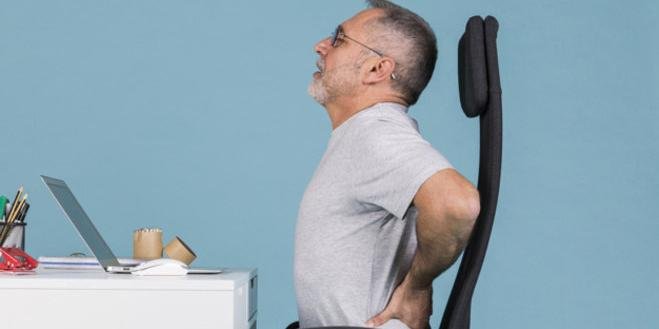Orthopedic problems such as back pain, muscle tension, tendonitis and torticollis increased in quarantine, says orthopedist Giancarlo Polesello, president of the Brazilian Hip Society. “What increased the most was the back pain, more specifically in the lower back.”
The increase in these problems is due to a sedentary lifestyle, poor posture, non-adequacy of the home environment for work, longer screen time, stress and other psychological problems.
To help prevent these problems, physical exercise is essential.
Another issue pointed is the posture problems in the home-office. “There were already posture problems in the offices, but there was a concern with the ergonomics of the equipment. Our house is not prepared for this, moreover it was thought that it would be only 15, 20 days of quarantine, when we are almost 6 months like this. ”
The doctor recommends making homemade adaptations to improve posture during the work period, adjusting the height of the chair, using cushions to lean against, footrest and pads for the computer’s mouse and keyboard.
“A very common disease for those who work a lot on the computer is tendonitis, an inflammation of the tendons, due to excessive movement without physical preparation.”
The disease causes pain in the affected region, usually a pulse, and functional physical changes, such as difficulty holding objects and writing. Another way to avoid the condition is to strengthen the muscle in the region with the guidance of a professional in the area.
For treatment, physiotherapy and the use of orthoses is recommended. Polesello warns that orthoses should be used only under medical guidance.
The orthopedist explains that another condition that has increased is muscle tension and torticollis. “The tension is, most of the time, due to stress and then each person will feel in a different place, some feel it in the neck, others in the lumbar region, others in the head.”
The doctor explains that torticollis can be treated with simple homemade measures, but that if the symptoms do not pass within two days it is necessary to go to the doctor, as it may indicate a more serious problem.
“You can make a hot compress, take a muscle relaxant and painkiller. Massage is complicated because if the person makes the wrong massage movements it can make the situation worse. ”
Torticollis that persists for more than two days can have a number of causes, such as a herniated disc in the cervical or even a tumor in the region, which can be in the bones, muscle, ligaments or blood vessels.
Polesello explains between the vertebrae of the spine there is a kind of cushion called an intervertebral disc, composed of a fibrous and harder outer part and a pulpy, softer nucleus. Hernia occurs when the nucleus escapes or creates a deformation on the outside, pressing on nearby nerves.
To avoid torticollis, the doctor recommends maintaining control of stress and anxiety and physical conditioning. “Nowadays it is difficult to live totally without stress, if you keep your physical body fortified, it is unlikely that these small daily tensions will cause you a stiff neck.”
According to the orthopedist, some people have a genetic predisposition for herniated discs, but the more fortified the muscles are, the less overload the discs will receive and, therefore, the less chance of the hernia developing.
The treatment of herniated discs is done with physiotherapy and medication, but in more severe cases, in which physical strength is compromised and physiotherapy is not effective, surgery is necessary.
The problem that most increased during the quarantine was pain in the lower back, according to Polesello, 80% of the population has this condition. The main causes are poor posture and lack of physical conditioning.
“The lower back is the main area of overload, it needs to keep the individual upright. If she is not prepared, that system will give way over the years. ”
To avoid it, it is important to correct your posture, maintain proper conditions at work, control your weight and practice physical activity. The doctor warns that there are numerous complications of this pain and the main one is the herniated disc in the lower back.
Discover more from Pilates All Ages
Subscribe to get the latest posts sent to your email.
